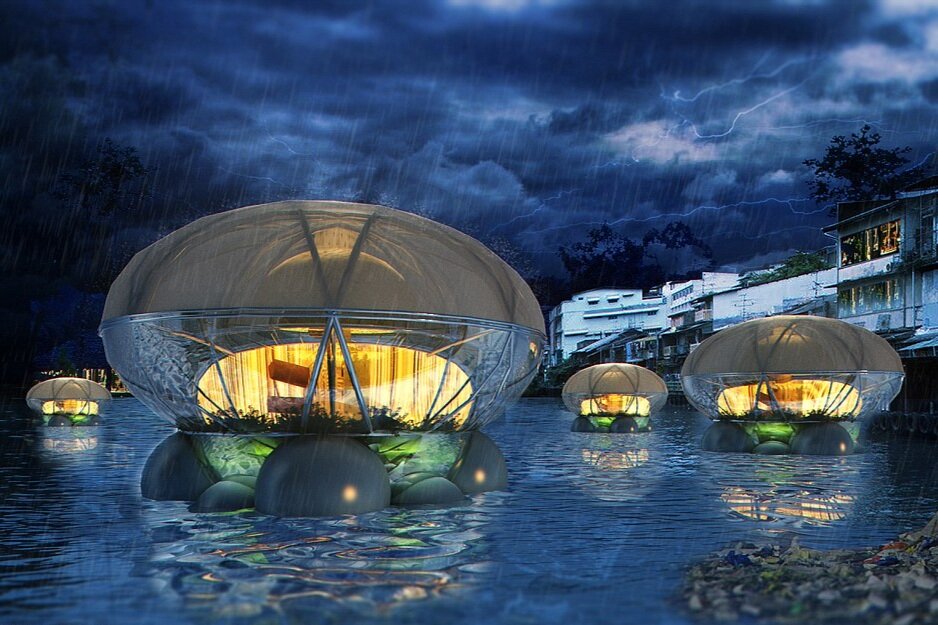Hotels as Game Changers: Hotels for Tomorrow and the Future
What are the key challenges facing the hotel industry in the 21st century?
A high demand for creativity, innovation and evolution is induced by competitive challenges and a rising demand for unique guest expectations. Changes in travel and online marketing are challenging hotels to move beyond brand identity to deepen their relationship with both guests and locations in a more symbiotic relationship, in search of new curated experiences.
A curated resort hotel experience, celebrating landscapes and vistas
Hotels are being re-imagined far beyond bed and bath
For the past decade the bath as a spa experience, unlimited connectivity and integration of user friendly technology has become an established expectation. What is next? How can we deliver authentic and tailored variations based on site and location? How do you create bespoke spaces for the future? How can we orchestrate new non-branded experiences for different target markets? For years hotel designers have explored futuristic floating space-like hotel capsules, nature resort capsules, or isolated hotels embracing challenging rock walls, which certainly can offer a unique once in a lifetime experience with a high price tag.
Floating hotels of the future: a molecular individual experience
The urban hotel of the future
Is no longer a fortress defined by brands, establishing a similar experience no matter where in the world you are traveling, but will increasingly become a dynamic and creative "bridge" to the local setting. As architects and designers we plan, use and re-purpose spaces to offer multiple opportunities and social chance-encounters. The hotel is becoming a dynamo, an active participant in the neighborhood, which makes the hotel a new destination in every setting, while in turn stimulating growth for the local market place in areas such as culture, arts, produce, work space, health, wellness and adventure opportunities. More and more people are becoming independent consultants and the need for social shared experiences is booming exponentially, which offers new opportunities for hotels to function as collaborative work environments and becoming truly engaged contributors in the local setting and culture.
The Warehouse Hotel in Singapore
The newly re-purposed Warehouse Hotel in Singapore by Zarch Collaboratives used to be an opium infested warehouse, which now offers a contemporary curated guest experience.
Hotels are increasingly becoming curators and incubators of experiences, activities, and cultural pursuits and are offering new menus of experiences and services. Hotels are merging global brands with local cultures, sharing their spaces and hospitality expertise which can stimulate growth for new services and attract more business and travelers. The travel experience is no longer limited to what happens within the hotel, but connections with travelers are created even before they arrive, during their stay and beyond. Zilwa Attutude Reort in Mauritius offers "Otentik" experiences such as dining and cooking with your bartender's family.
Re-purposed warehouse buildings offer special experiences and opportunities
Until recently hotels competed for customer loyalty by creating branded experiences, reward systems and a sense of belonging to a worldwide brand. Today we see a surging counter movement away from homogeneous design standards by brand hotels which used to offer a known experience of a particular brand regardless of location. The result was impersonal, predictable, and ultimately boredom.
Today travelers want authentic and bespoke experiences
Most travelers now crave personalized, unique design, and becoming an active part of local culture or nature. Hotels create the interactive platform where guests and locals can share with one another, learn and explore. Being a curator, the hotel provides selected experiences and content, which will make travelers feel they have truly landed in a potential second home setting. Locals contribute and share in creating guest experiences.
What if your hotel was re-purposed cement factory? (Architect Ricardo Bofill's residence and studio)
In order to create new hotels we must first understand the customer profile and the product must be responsive to this data. Today’s world class customers have very different expectations which do not always mix well:
Business travelers:
Combining work and pleasure, appreciating an efficient and innovative social experience of learning as well as a memorable comfortable stay.
Recreational travelers:
Seeking a wide variety of relaxation, activities, adventure, health and wellness facilities.
Adventure seekers:
Which unique activities can your location offer that cannot be found anywhere else?
Independent travelers:
Seeking exotic, fun, social and local experiences.
Families
Multi generation travels: require a wide aspect of offerings, shared and separate activities, as well as exclusivity. Service options need to target all age groups and create bonding experiences.
Romance travels:
Exclusivity, memorable adventures and creative service to create truly memorable moments.
Celebrity travelers:
Require the ultimate security and privacy.
Second, what are the special qualities of a particular place?
Good design is arising from a sense of a unique culture and place. It is crucial to understand the local culture and the quintessence of the local experience. Design can celebrate and augment unique qualities which can deliver a genuine local one-of-a-kind experience.
Start with a SWOT analysis:
· What are the strengths of a particular location: safety, diversity, the people, scenic beauty, climate, isolation, multi-culture?
· What are the weaknesses? Lack of connectivity? Lack of pedestrian urban experience, travel time to arrive at destination, aging population, accidents, no night life?
· What are the opportunities? Multi-cultural, spiritual, historic heritage, diversity in recreational offerings, unique nature?
· What are the threats? Environmental issues, staff migration, water?
How do you want to be experienced?
Build your hotel around it. What is your story? Create a story line around your unique selling points and target your guests by creating stimulating irresistible agendas which stir their emotion and passion. This will become your most efficient marketing tool. Both staff, locals and guests will share with others what is truly unique, sensational and different.
What is your story?
“A high demand for creativity, innovation and evolution is induced by competitive challenges and a rising demand for unique guest expectation”









